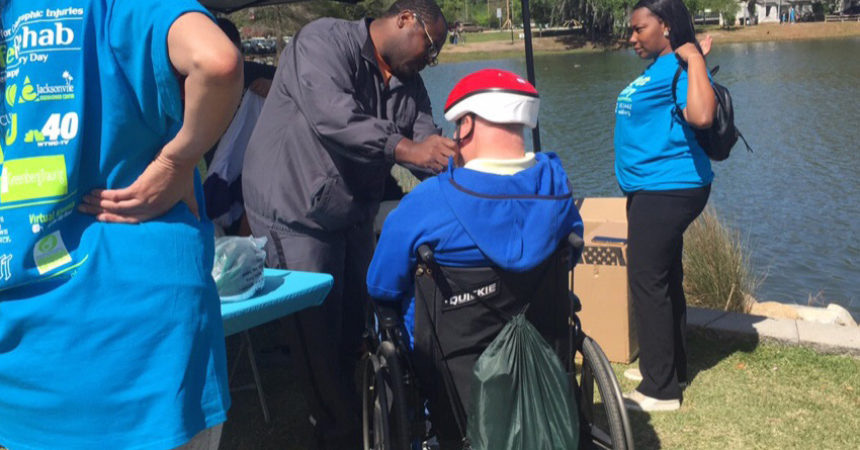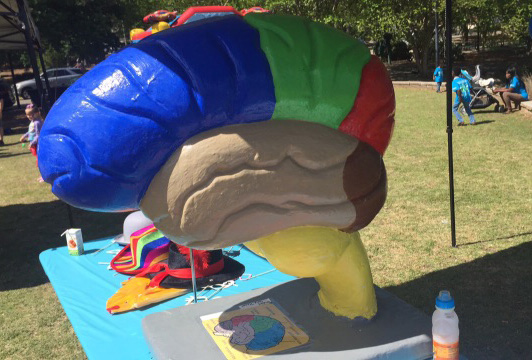
Sudden impact of brain injury changing lives every day

Hundreds gathered for Walk-A-Long fundraiser to bring awareness to Brain Injuries.
Photos by Chambria Gordon

Large brain on display for attendees to learn the brain’s multiple parts.
By Chambria Gordon
Outlook Writer
One phone call four years ago changed Todd Taylor’s life forever, as he listened to the voice on the other end deliver the kind of message that most parents dread.
His 21-year-old son, Trett, was celebrating spring break in Orlando. One evening during a night out with some friends, a fight broke out.
Trett tried to break it up, but what transpired turned out to be life-changing.
“All it took was one hit,” said Taylor, vividly recalling what he knows of the incident.
Trett sustained a traumatic brain injury and died instantly.
He became part of an astonishing statistic. Every day 153 people in the Uniteda States die from injuries like Trett’s, according to the Centers for Disease Control and Prevention.
“This silent epidemic has become such a bigger problem; people just don’t know how serious a brain injury is,” said Djenaba Burns, President and C.E.O of the Brain Injury Association of Florida.
As part of its mission to bring awareness to causes and effects of brain injury, the association held its annual Walk-A-Long fundraiser this past weekend at Lake Ella. Money raised from the event is donated to brain injury patients.
“Today we are here to honor the people we love — the people who we have lost — and the people who have survived traumatic brain injuries,” said Burns. “I’ve seen too many cases where people overlook a concussion. It’s essential to know the signs of a brain injury and try to address them as soon as possible.”
The event began with an awards ceremony, honoring the people who have championed the organization’s cause through fundraising.
“Today I’m here to walk in memory of Tim Rocchio,” said Grace Mackrel, one of the participants.
Rocchio, who was the last of the original founders of the association, died earlier this year. Since it was initiated about 30 years ago, the Brain Injury Association has been Florida’s only statewide non-profit dedicated to raising awareness and helping prevent brain injuries.
Vendors were on site during the walk event to provide resources for anyone concerned about brain injury and how to treat or prevent it.
“Today I have my grandson with me because I wanted to get his head checked for the proper helmet,” said Mackrel. “This is a serious matter and I get scared when I hear he’s climbing a tree or going to play football.
“You know it’s just hard. One day you’re making your kid eggs and then the next day you get a phone call saying they dove into a pool and missed the water.”
Learn more about brain injuries by visiting www.BIF.org.







